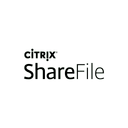
Senior Engineer - TPM & Reliability
Micron Technology
Job Summary
Lead and coordinate the implementation of Total Productive Maintenance (TPM) practices across all utility systems in a semiconductor facility. This role ensures maximum equipment reliability, zero unplanned downtime, and continuous improvement in operational efficiency. Key responsibilities include developing and executing a comprehensive TPM roadmap, driving Autonomous Maintenance (AM) activities, establishing Planned Maintenance (PM) schedules, and integrating TPM pillars into workflows. The engineer will also monitor performance, conduct root cause analysis, collaborate cross-functionally, and provide training.
Must Have
- Lead and coordinate TPM implementation across utility systems
- Develop and execute a comprehensive TPM roadmap for utility and facility systems
- Drive Autonomous Maintenance (AM) activities
- Establish Planned Maintenance (PM) schedules
- Monitor utility equipment OEE and TPM performance metrics
- Conduct root cause analysis (RCA) for repeated failures
- Coordinate with production, maintenance, quality, and safety teams
- Conduct regular TPM awareness sessions, skill development workshops, and hands-on training
- Ensure all TPM activities comply with semiconductor industry safety protocols, environmental regulations, and cleanroom standards
- Bachelor’s degree in Mechanical, Electrical, Instrumentation, or Industrial Engineering
- 12–15 years of experience in utility engineering or facilities maintenance (preferably in semiconductor or high-tech manufacturing)
- Proven track record in TPM implementation and continuous improvement projects
- Strong knowledge of utility systems and semiconductor facility infrastructure
- Excellent problem-solving and analytical skills (RCA, 5-Why, Fishbone diagram)
- Good leadership, communication, and training abilities
- Proficiency in maintenance management software and TPM documentation
- Familiarity with cleanroom protocols and semiconductor industry standards
Good to Have
- TPM / Lean Manufacturing certification
Perks & Benefits
- Paid Time Off
- Continuous Learning
- Wellness Programs
- Stock Purchase Program
- Health Insurance
- Recognition
Job Description
Job Purpose:
Lead and coordinate the implementation of Total Productive Maintenance (TPM) practices across all utility systems in the semiconductor facility, ensuring maximum equipment reliability, zero unplanned downtime, and continuous improvement in operational efficiency.
Key Responsibilities:
1. TPM Implementation & Coordination
- Develop and execute a comprehensive TPM roadmap for all utility and facility systems (e.g., HVAC, process cooling water, DI water plant, vacuum systems, exhaust systems, compressed air systems, fire protection, office AC, and related infrastructure).
- Drive Autonomous Maintenance (AM) activities by training and guiding operators on basic equipment care, cleaning, lubrication, and inspection.
- Establish Planned Maintenance (PM) schedules aligned with equipment criticality and OEM recommendations.
- Integrate TPM pillars (Focused Improvement, Education & Training, Early Equipment Management, Safety/Environment, and Quality Maintenance) into departmental workflows.
2. Performance Monitoring & Analysis
- Monitor utility equipment OEE (Overall Equipment Effectiveness) and other TPM performance metrics (MTBF, MTTR, breakdown frequency, cost of maintenance).
- Conduct root cause analysis (RCA) for repeated failures and coordinate countermeasures to prevent recurrence.
- Prepare and present monthly TPM progress reports to management.
3. Cross-Functional Collaboration
- Coordinate with production, maintenance, quality, and safety teams to align TPM activities with plant operational goals.
- Work with engineering teams during new equipment procurement and commissioning to integrate TPM-friendly design.
4. Training & Culture Building
- Conduct regular TPM awareness sessions, skill development workshops, and hands-on training for technicians and operators.
- Promote a culture of ownership, discipline, and continuous improvement within the utility engineering team.
5. Safety, Compliance & Standards
- Ensure all TPM activities comply with semiconductor industry safety protocols, environmental regulations, and cleanroom standards (ISO 14644 or equivalent).
- Maintain updated documentation of maintenance procedures, checklists, and standards.
Key Performance Indicators (KPIs):
- Reduction in unplanned utility equipment downtime.
- Improvement in OEE and equipment reliability.
- Increase in AM participation rate by operators.
- Successful execution of planned TPM milestones per roadmap.
- Reduction in maintenance cost per unit output.
- Achievement of safety and compliance targets.
Qualifications & Skills:
Education:
- Bachelor’s degree /Mechanical, Electrical, Instrumentation, or Industrial Engineering.
- TPM / Lean Manufacturing certification preferred.
Experience:
- 12–15 years of experience in utility engineering or facilities maintenance, preferably in semiconductor or high-tech manufacturing.
- Proven track record in TPM implementation and continuous improvement projects.
Skills & Competencies:
- Strong knowledge of utility systems and semiconductor facility infrastructure.
- Excellent problem-solving and analytical skills (RCA, 5-Why, Fishbone diagram).
- Good leadership, communication, and training abilities.
- Proficiency in maintenance management software and TPM documentation.
- Familiarity with cleanroom protocols and semiconductor industry standards.
Work Environment:
- Primarily within a controlled cleanroom and utility plant environment.
- Requires coordination with multi-disciplinary teams and occasional vendor interaction.
- May involve working in shifts or during planned shutdowns.
About Micron Technology, Inc.
We are an industry leader in innovative memory and storage solutions transforming how the world uses information to enrich life for all. With a relentless focus on our customers, technology leadership, and manufacturing and operational excellence, Micron delivers a rich portfolio of high-performance DRAM, NAND, and NOR memory and storage products through our Micron® and Crucial® brands. Every day, the innovations that our people create fuel the data economy, enabling advances in artificial intelligence and 5G applications that unleash opportunities — from the data center to the intelligent edge and across the client and mobile user experience.
To learn more, please visit micron.com/careers
All qualified applicants will receive consideration for employment without regard to race, color, religion, sex, sexual orientation, gender identity, national origin, veteran or disability status.
To request assistance with the application process and/or for reasonable accommodations, please contact hrsupport_india@micron.com
Micron Prohibits the use of child labor and complies with all applicable laws, rules, regulations, and other international and industry labor standards.
Micron does not charge candidates any recruitment fees or unlawfully collect any other payment from candidates as consideration for their employment with Micron.
AI alert**: Candidates are encouraged to use AI tools to enhance their resume and/or application materials. However, all information provided must be accurate and reflect the candidate's true skills and experiences. Misuse of AI to fabricate or misrepresent qualifications will result in immediate disqualification.
Fraud alert: Micron advises job seekers to be cautious of unsolicited job offers and to verify the authenticity of any communication claiming to be from Micron by checking the official Micron careers website in the About Micron Technology, Inc.
Micron Foundation
Strong communities and education are vital to the success of both society and innovative companies. Every Micron site understands the complex needs of their local community. Whether it’s through strategic giving, sponsorships or deploying team member volunteers, we are making a difference.
Sustainability
Micron is committed to sustainable practices and supporting our global community. We are building and maintaining sustainable operations, products, and communities while focusing on opportunities and risks that are most important to our business success and stakeholders.




